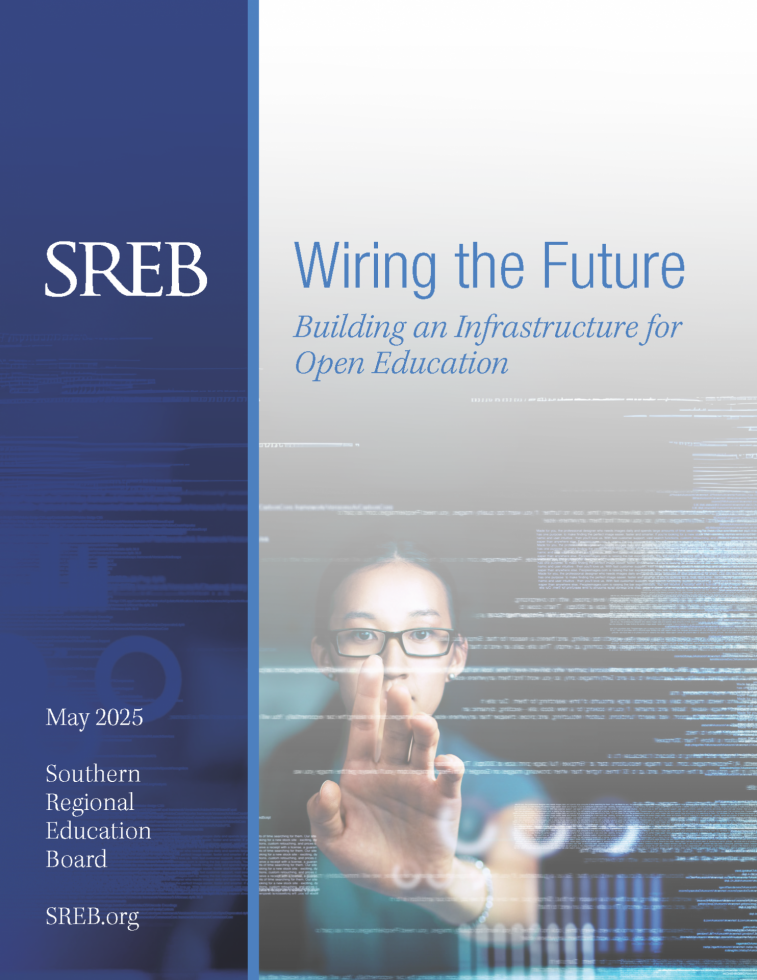Educational Technology Cooperative
Educational Technology
Where technology and learning connect
SREB states are at the forefront of many of the fast-paced changes technology is bringing to education. SREB helps state leaders create and expand effective uses of technology in schools and colleges.
Wiring the Future
Building an Infrastructure for Open Education
The open education movement has propelled open educational resources to the forefront of conversations on improving access and success in higher education. Technological advancements have expanded educational opportunities by allowing students to access information instantly, communicate globally and share learning materials at little to no cost.
Wiring the Future
Building an Infrastructure for Broadband Access
In today’s technology-driven world, reliable broadband access is critical for student success. Whether completing online assignments, attending virtual classes or accessing educational resources, students depend on fast and stable internet connections to fully engage with digital educational tools. Schools and universities increasingly use digital platforms to house course content, assignments and discussion boards. Without adequate broadband access, students face significant barriers to learning.





